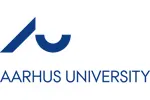

| The award | How you will study | Study duration | Course start | Domestic course fees | International course fees |
|---|---|---|---|---|---|
| MSc | Full-time | 4 semester | September, February | 0 | EUR 0 per year |
The MSc degree in Statistics is a flexible programme that builds general competencies in statistics while allowing students to specialise in the particular branch of statistics of their choice, such as one of the areas in which Aarhus University is particularly strong - theoretical and applied statistics, and probability theory.
STATISTICIANS IN DEMAND
Teaching on the programme is greatly influenced by research, as the lecturers are active researchers. In addition to lectures, instruction includes theoretical and practical exercises.
The Statistics programme at Aarhus University is characterised by a strong focus on theoretical aspects. Incoming students are required to have a strong background in advanced probability theory based on measure and integration theory.
STUDENT LIFE
Students in the programme are based at the Department of Mathematics, which has its own canteen, computer rooms, library, and study areas shared by students. As a master's student, you will receive your own desk in an office shared with other master's students. The department also has a number of student organisations such as Euler's Friends and the Kalkulerbar or Friday bar, through which academic activities, study trips, and social functions are organised.
CAREERS
There is an undersupply of statisticians. Statistics graduates from Aarhus University are very much in demand, and their employment prospects are extremely good, whether in Aarhus, other major Danish cities, or overseas.
Recent statistics graduates have taken up careers in universities and research institutions, in the pharmaceutical industry, in the telecommunications and finance sectors, and in insurance companies. In universities, statistics graduates frequently work with doctors, biologists, or chemists in an interdisciplinary setting analysing large amounts of data, while others teach statistics. Within the pharmaceutical industry, statisticians plan clinical trials or design methods to test new drugs for unwanted side effects. In insurance, statistics graduates often work as actuaries, for instance contributing to working out tariffs.
Common to all these careers is that they require knowledge of a number of advanced mathematical models, and that is what the MSc in Statistics will equip you with.
Graduates can also apply to enter the PhD programme.
All EU/EEA/Swiss citizens are exempt from payment of tuition fees.
In general, admission to a Master’s degree programme requires successful completion of a relevant and recognised university degree equivalent to a Danish Bachelor’s degree in level and length (180 ECTS). All applications must also fulfil the English language requirements.
Find more information about the admission requirements, application procedure and deadlines at Aarhus University.
In addition, you must meet the specific requirements for the Statistics programme, which can be found on the Statistics study programme page.
Below are some suggested courses at other providers that you may also be interested in:
If you do not meet the entry requirements for this course then consider one of these postgraduate preparation courses from another institution:
Graduate Diploma of Engineering (Safety, Risk and Reliability)
Engineering Institute of Technology
Find out morePre-Master's Diploma - English Language and Study Skills
Oxford Brookes University Pathways
Find out moreThere are 56 other courses listed from Aarhus University. A selection of these are displayed below:
Find out more about studying in Denmark